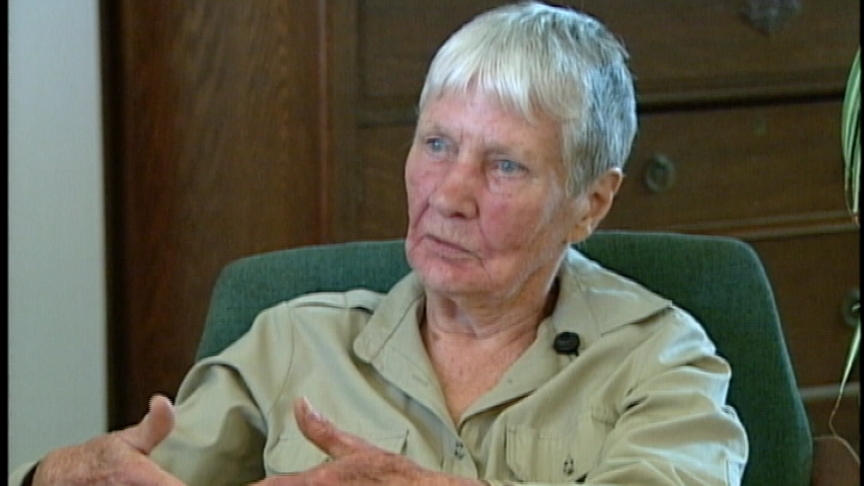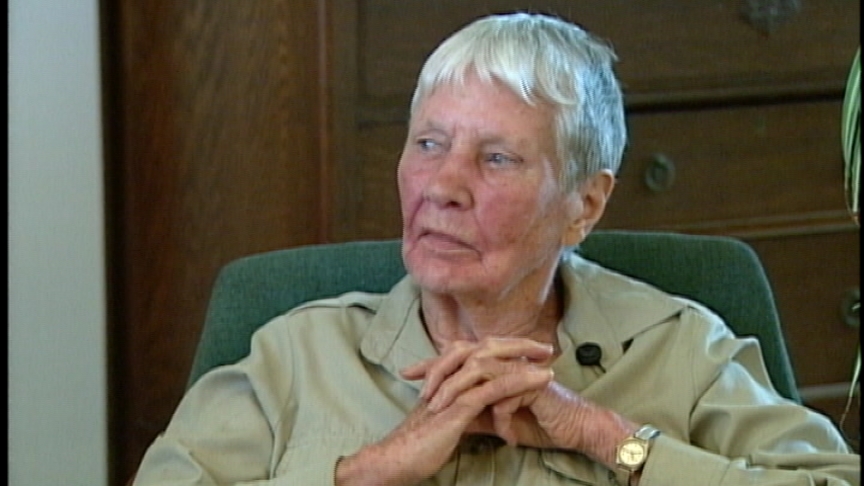Experiences With Patients
Heroes Remember
Experiences With Patients
Transcript
I had a great report with the, with the soldiers there, the
patients who were nuts, on the whole sick, they had
and there was one I remember in particular, which was very sad,
he'd been riding on a motorcycle and he could see
that this car coming, was a car, and the other chap thought it
was a motorcycle, cause he only had one little light on, cause
back out in England. And, the man saw that they were going to
hit it, and they did and he use to have nightmares, awful
nightmares. He was um, isn't that awful, I can still, he, he
was red headed and he use to throw himself despite the fact that
he was impassive from the waist down and had side boards on
and he'd through himself out of the bed.
Interviewer: Trying to get away from the car?
It was interesting, but on the whole, there was seven or eight
of them on crutches, ya know, and
they were a pretty, pretty good bunch.
Then I started working in the operating room and I worked in the
operating room a great deal and I worked, I was working in the
operating room at the time of Dieppe and we got a lot of
casualties back from Dieppe and we worked hard in Bramshot
although it was more like civilian life, in many ways. But we
only had one weekend, one long weekend a month, is all we had
off and we worked from seven in the morning til seven at night.
No, I think it was eight, eight in the morning til eight at
night and then we'd have either two hours off during the day
time or we'd get off at 4:30 in the afternoon, one or the other.
Interviewer: And I imagine you were so tired that you.
We weren't, we were young and weren't so tired, and then every
weekend we'd go away somewhere, up to London, and if, London
wasn't off bounds. And we had a garden, and it upset the
English, cause the English said, look at those Canadians
gardening on that side of the road,
why can't we garden on our side of the road.
Interviewer: They weren't aloud to Garden
It was common land and in England common land is pretty sacred.
But anyway, we had a garden, we had gardens, the officers had a
garden and the men had a garden,
and the nursing sisters had a garden.
I was there at the turn of Dieppe and then I went to Africa and
Italy and then I came back and I was at Bramshot again, at the
time of D Day. And I really can't keep the two of them straight
in my mind you know there was just times when you worked hard.
One thing I do remember, this is a pretty tragic thing, there
was a chap had a gun shot wound in his one leg and only a little
wound in the other leg and there had been a bandage put on this
little wound, unfortunately the foot had swollen, swollen up so
the bandage acted as a tourniquet and his leg was gangrenous so
he had to have both feet off. And had it not been for that
little, I can still see that little two inch bandage, it was
constricting his circulation and It wasn't really anyone's fault
but it was just a very sad thing to have happened.
Description
Stationed at a Canadian military hospital in Bramshot, England, Ms. Rogers recalls various experiences with patients while at that location.
Ruby Rogers
Ruby Rogers was born in 1917 in Cherrywood, Ontario. At a young age, she moved to Agincourt. When she was 19 years old, she went into training to be a nurse at Toronto General Hospital. Shortly after the Second World War began, she enlisted with the Canadian Army and was sent to England.
Meta Data
- Medium:
- Video
- Owner:
- Veterans Affairs Canada
- Duration:
- 04:41
- Person Interviewed:
- Ruby Rogers
- Branch:
- Army
- Occupation:
- Nurse
Related Videos
- Date modified:




